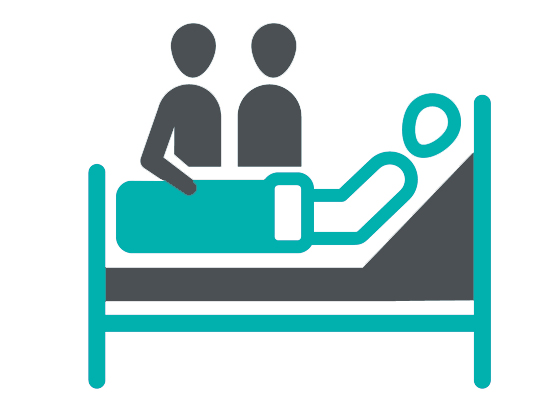
By Jim Parker
Hospice referrals appear to be going up. But many patients who get the referral never receive the care due to low health literacy and social determinant of health factors.
Among patients who received inpatient discharge instructions indicating hospice, nearly 1 in 10 did not enroll within 30 days of leaving the hospital, according to recent research from Trella Health. The company used data from the last quarter of 2020 and the third of 2021.
This trend held despite over all growth in the number of individuals who had received discharge instructions to enter hospice, according to Carter Bakkum, senior data analyst for health care insights at Trella Health.
“When the [hopital] patient is discharged, thosewho have instructions to seek hospice are making up a greater percentage of that pool,” Bakkun told Hospice News. And that means that the the knowledge and awareness of hospice care is growing.”
But there remains a gap in the number of people who receive those instructions and then adhere to them.
Any number of considerations can play into this, including patients’ choices, family input, cultural belief about the end-of-life, among others. But systemic issues also exist.
One of thos issues is poor health literacy, according to Kenneth Griffith, assistant professor of health policy at Vanderbilt University.
“I have a Ph.D. in health services research, and I still find a lot of medical instructions confusing. So I can only imagine what it’s like for folks who don’t do this kind of work every day,” Griffith told Hospice News. “Some hospitals have have reengineered their discharge processes to help put instructions in lay language, which is especially important for older, disabled adults. But this is definitely still not the norm.”
Health literacy is the degree to which individuals can obtain, process and understand basic health information and services needed to make appropriate health decisions, according to the Institute of Medicine. A health illiterate patient may have a strong overall ability to read or have an advanced education but have a limited understanding of information specific to health care.
This perspective is backed by other research. In general, patients who have poor health literacy are less likely to enter hospice care, a study in the American Journal of Hospice & Palliative Medicine found.
Delays in routine care can also adversely affect referrals and adherence is, often due to a range of unaddressed social determinants of health.
Some patients delay or cancel health care appointments because of insurance status, affordability, transportation difficulties, or a lack of social support, according to Griffith.
“You might want to receive your post-acute care as instructed, but you don’t have anyone to take you to your appointments, Griffith said. “Patients could face a lack of transportation access. Maybe you want to go, but it requires transferring between multiple bus lines. There just might not be a lot of options in your area. Especially if you are you a frail or you are a disabled, that can just be very challenging.”
Health care organizations have taken some strides towards addressing social determinants of health, though that work is not over.
Case in point, the U.S. Centers for Medicare & Medicaid Services (CMS) as of 2020 allows Medicare Advantage plans to cover supplemental non-medical benefits, including transportation and food services and some home modifications, among others.
While offering these benefits is optional for MA plans, a rising number are embracing them. As of 2021, 67% of individual plans offered support related to meals, as well as 69% of special needs plans, according to the Kaiser Family Foundation.
In addition, about 38% of individual plans covered transportation benefits. Among special needs plans the proportion was 87%.
Value-based payment models like Medicare Advantage provide more opportunities to address social determinants amd adherence to discharge instructions that the fee-for-service system, Griffith told Hospice News.
“Our health system doesn’t incentivize the type of care coordination that we might need. That’s the unfortunate nature of having a fee-for-service health system like we do,” Griiffith said. “If you are a health system getting a capitated payment on a patient, you have a much greater incentive to worry about what’s happening after the patient is discharged — especially if you have if you have the financial risk.”
Complete Article ↪HERE↩!
